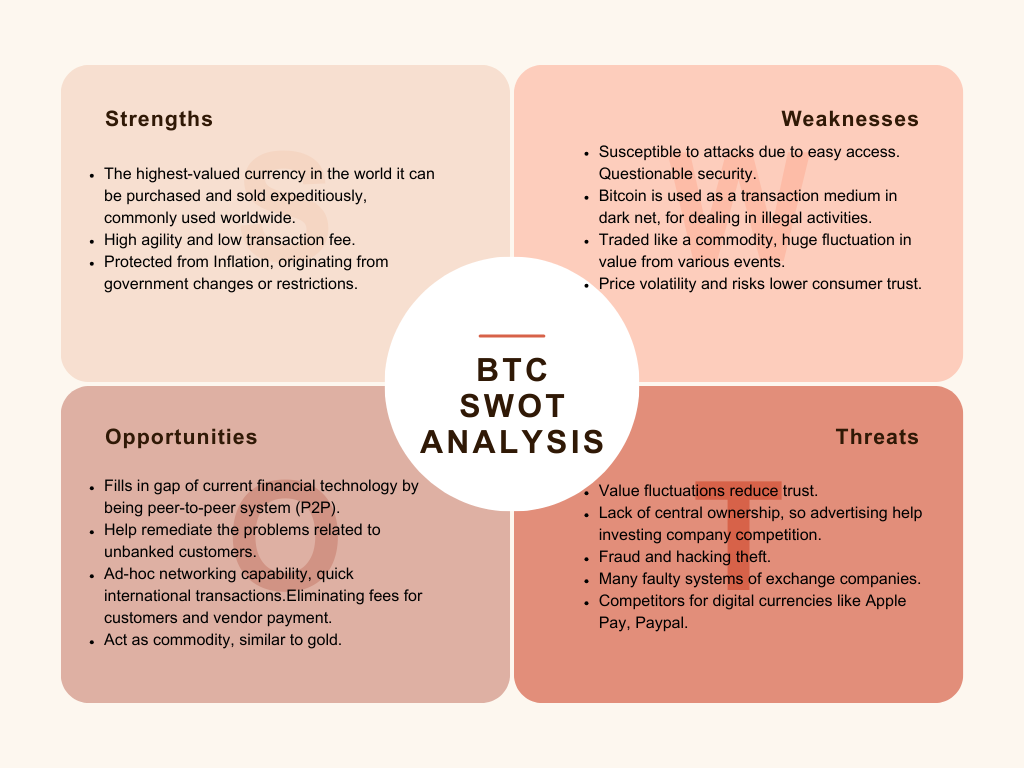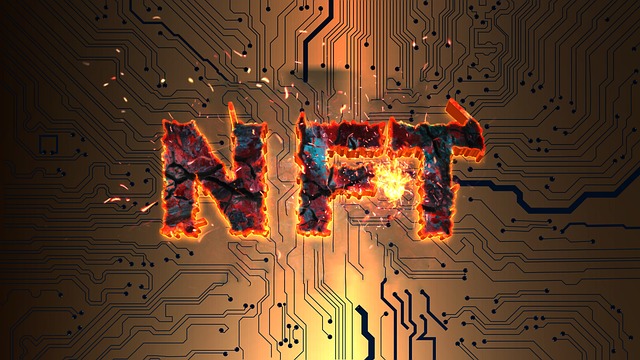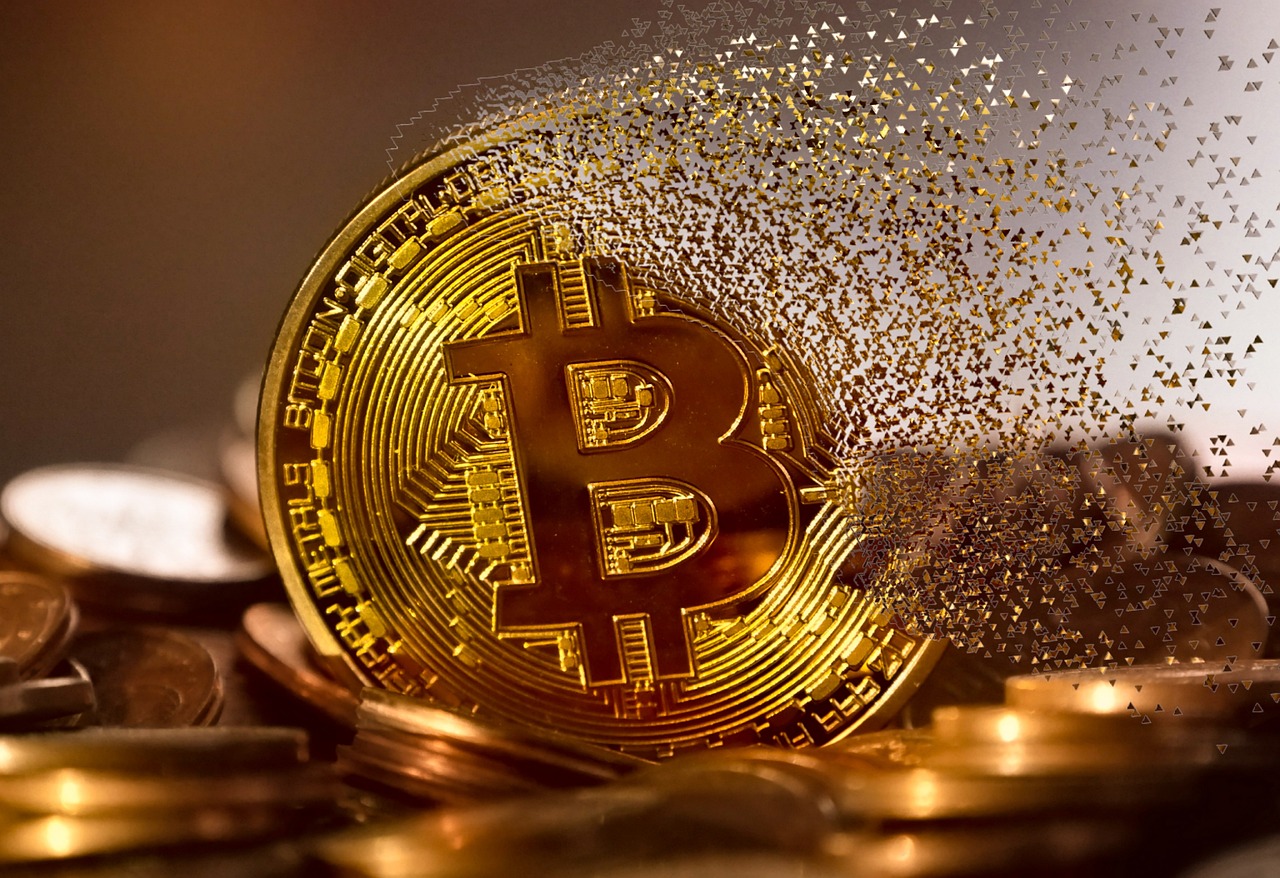Table of Contents
Every day the world is rapidly changing and we are constantly hearing about new developments.
We are on the brink of something huge, a new global shift is just around the corner. I am excited to share my insights and thoughts about technology.
I am particularly fascinated by what the future holds. I've been researching about blockchain technology extensively, and its possible effects on how we might live in the future.
Most of us who use the internet have probably heard about cryptocurrencies like Bitcoin. Yet, not everyone understands what they are, how they function, and their significance. I confess that I used to view them mainly as a form of investment, often to speculation or gambling, which could either be thrilling or disappointing. Moreover, due to the nature of immersion in new technology, there are many scams and thus surrounded by risks. But there's more to it than that. Hopefully. When the time comes, we should know better about blockchain technology. In this article, I would like to unlock a new opportunity and share basic knowledge about blockchain technology.

People working in IT are advised to learn about Web 3.0 and blockchain technology. However, as it stands, blockchain isn't widely known to the public yet. As of 2015, about 86% of people said they didn't know what blockchain is. This article explains why that's the case. As more specific services start to use it, people will have more chances to learn about blockchain.
What is Blockchain?
Blockchain is a game-changer, revolutionary technology with wide-ranging applications across various industries. One of its most notable achievements is the creation of cryptocurrencies like Bitcoin. To get started, let's break down with a simple finance example. Blockchain enables the existence of a new currency, which is called cryptocurrency. Take Bitcoin, for instance, the most famous cryptocurrency, is born from blockchain. Like traditional currencies such as the US dollar, Bitcoin is a medium of exchange. It is the digital money created by the blockchain. Using the special coding technique, secure transactions and control the creation of money. The value is created and stored electronically on the blockchain and formed as a digital currency. After going through a series of buy and sell transactions, it has maintained its price until today. The blockchain method ensures safe and controlled financial dealings in the digital world. (Making Sense of Bitcoin, Cryptocurrency, and Blockchain 2015).

Blockchain technology makes the existence of cryptocurrencies like Bitcoin possible.
Blockchain technology, often referred to as the public ledger, operates on a principle where every transaction is transparent and visible to all users. This forms the basis of its value. Introduced by Satoshi Nakamoto, both technology and Bitcoin, blockchain has gained significant recognition. Today, blockchain technology holds the potential for wider applications that extend well beyond Bitcoin and cryptocurrencies. According to the 2015 PwC Consumer Cryptocurrency survey, there are only 6% of people answered very familiar or extremely familiar, while 89% answered slightly familiar or not at all familiar. Blockchain technology is still not widely known yet, however, its popularity could increase with the introduction of innovative offerings and services that traditional payment systems don’t provide.
Technology is evolving quickly. and while cryptocurrencies are not expected to completely replace traditional fiat currency, they are set to transform global market interactions over the internet. This transformation will break down the barriers associated with conventional national currencies and exchange rates (DeVries 2016).
A SWOT analysis in the paper offers a simplified view of this transformation, highlighting the strengths, weaknesses, opportunities, and threats associated with blockchain and cryptocurrencies.

Web 3.0 and Token Business: Japan NFT Strategy

Web 3.0 is the latest buzz in the IT world, seen as the future of the internet. Let's break down its evolution;
- Web 1.0 was all about the basics: browsers, websites, and emails. In this stage, our interaction was mostly just "reading" digital content.
- Web 2.0 brought us smartphones, mobile apps, and big data. Here, we could not only "read" but also "write" and share content on platforms like Facebook, Instagram, and Twitter. The internet revolved around these platforms.
- Web 3.0 (what's coming)" This new phase is about a token economy and decentralization, like blockchain and metaverse (XR). It's not just about "reading" and "writing" anymore; it's about "owning" digital assets, too. This is where NFTs (non-fungible tokens) come into play, driving the digital economy forward.
Experts and startup leaders in Japan express both excitement and concern about Web 3.0. They see it as a great opportunity, however, they also fear Japan might fall behind if it doesn't adapt quickly. “The arrival of the Web 3.0 era is a great opportunity for Japan. But if we continue as we are not, we will surely miss the boat”. (NFT White Paper Japan’s Strategy 2022).

The arrival of Web3.0 could become a strength for Japan, a powerhouse in content creation, but the country is lagging in adapting to it.
Currently, there is no single place or “one-stop consultation desk”, where businesses can go to get all their questions about Web 3.0 answered. Unlike the US and other countries in Europe, where clear regulations and guidelines for Web 3.0 are already in place, Japan is facing some challenges. NFT transactions, involve selling in a second marketplace, they might fall under gambling laws so they need clear legal guidelines. The authorities and agencies need to confirm legal issues, to give clear answers. There are many hurdles, the situation in Japan is more complex due to conservative financial regulations and a cautious approach to innovation. Many pointed out that Japan’s financial regulations and accounting systems are holding back investment, and that strict regulations on issuing tokens, limit opportunities for promising companies. Additionally, heavy tax burdens and a culture less open to innovation are driving entrepreneurs and engineers to move overseas. When businesses do seek advice, they often receive vague or overly cautious responses. (NFT White Paper Japan’s Strategy 2022). This environment makes it difficult to design a national strategy for developing the digital economy around Web 3.0. However, Japan established a strategic project team in 2022 to tackle these challenges and hopefully create a more conducive environment for Web 3.0 development.

Until now, there hasn't been a team known for expertise in Web3.0 or NFTs. Finally, in 2022, a team was established within the Japanese government, and they began to publish their strategies online.
Conclusion
We're really excited about the idea of having a "one-stop consultation desk" in Japan for Web 3.0. We'll keep you updated on this topic. The shift to digital transformation (DX) is crucial, and Japan needs to act fast to keep up with other countries.
Japan is rich in unique content like games, anime, manga, music, movies, and art. By collaborating with other countries, Japan aims to develop a thriving ecosystem and a healthy NFT market. This collaborative approach will help in leveraging Japan's unique cultural assets in the evolving digital landscape.
Works Cited
DeVries, Peter D. “An Analysis of Cryptocurrency, Bitcoin, and the Future.” October 2016. Research Gate. https://www.researchgate.net/publication/316656878_An_Analysis_of_Cryptocurrency_Bitcoin_and_the_Future
Making Sense of Bitcoin, Cryptocurrency, and Blockchain. Making Sense of Bitcoin, Cryptocurrency, and Blockchain. 14 Jan. 2024, https://www.pwc.com/us/en/industries/financial-services/fintech/bitcoin-blockchain-cryptocurrency.html.
Money Is No Object: Understanding the Evolving Cryptocurrency Market. Money Is No Object: Understanding the Evolving Cryptocurrency Market. 14 Jan. 2024, https://www.pwc.com/us/en/industries/financial-services/library/cryptocurrency-evolution.html.
NFT White Paper Japan’s NFT Strategy for the Web 3.0 Era. Liberal Democratic Party Headquarters for the Promotion of a Digital Society Project Team regarding NFT Policies. 2022. https://www.taira-m.jp/Japan%27s%20NFT%20Whitepaper_E_050122.pdf
